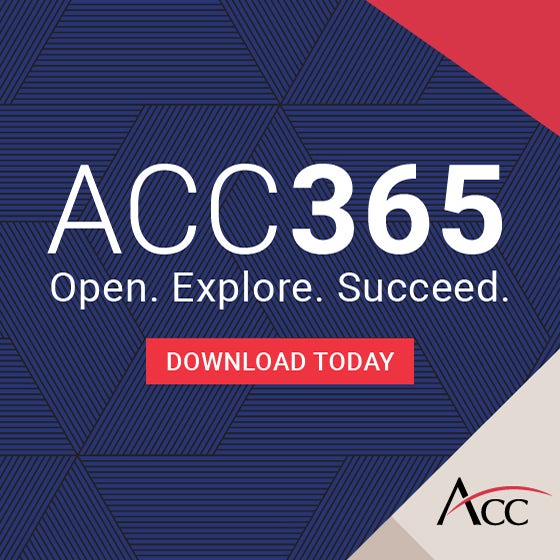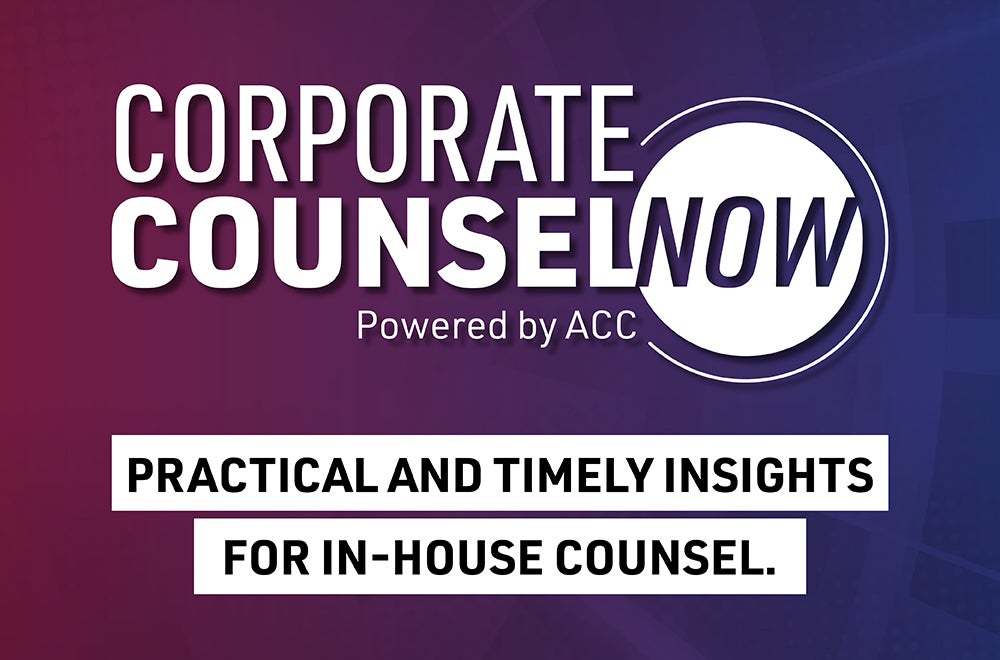In the last two newsletters we highlighted our commitment to improving the health and wellbeing levels of the in-house legal community through establishing the In-House In-Health initiative and committee to ensure programming content, resources and information are readily available for members.
Our upcoming In-House Counsel Days in Melbourne, Perth and Sydney will feature a panel discussion where Mind Matters are explored and a range of experts will discuss how to take care of the most important collateral of your in-house legal team: their minds.
Laini Bennett from LegalVision, provided the first two of three valuable strategies to improve the productivity of your team through wellness-related initiatives. Read on for the final strategy.
Part Three
In the previous two newsletters I suggested:
- 1. embracing innovation such as new technology, or outsourcing high-volume, low complexity work, and
- 2. communicating clear expectations on acceptable work practices, as two one practical ways of releasing the pressure and increasing productivity in your team.
... now for the third and final strategy;
Strategy Three: Understand the Value You Represent to the Business.
Speaking at the ACC’s 25th In-House Legal National Conference in a panel session on ‘How to stop your lawyers burning out, tuning out and dropping out’, Canon’s Chief Legal Counsel David Field said lawyers are predisposed to being driven, often needing to prove something to someone or to earn someone’s approval. It can be easy to forget just how much you contribute to your organisation.
Field stressed the importance of understanding the value you deliver and that your company should appreciate how lucky they are to have you. Understanding this can give you the confidence to say ‘no’ to unacceptable behaviours, and to call it out for what it is.
For example, in a sales organisation, it is not unusual for legal input to be sought at the last minute of a deal, putting intense pressure on the in-house team. “So, if they say ‘we’re going to lose this deal because of you’, have the confidence to say ‘no, that’s not right - this is the situation you’ve walked us into,’” Field said. It’s okay to push back and explain: “I understand and want you to win this deal. But you cannot keep dropping these deadlines on us and expect us to turn them around.”
Call out the behaviour, set expectations, and recognise that you have earned the right to stick to them.
Key Takeaways
It’s a positive trait to be a great critical thinker and problem solver, but you won’t be doing anyone a favour - least of all yourself - if you burn out. A new decade is a new opportunity to change the way you work, supporting your mental and physical wellbeing and that of your in-house legal team. This means:
- 1. finding the time to optimise your legal function, using technology and third-party resources to reduce the impact of high-volume, low complexity tasks;
- 2. talking to your team about what flexible work practices look like, both to them and the business (and not forgetting to ‘walk the talk’ yourself by setting an example); and
- 3. remembering just how much value you bring to your organisation; have the confidence to take a stand against unacceptable work practices and stick to your guns.
Laini Bennett is Head of Content at LegalVision. She is responsible for LegalVision’s freely available database of articles and publications. LegalVision is a market disruptor in the commercial legal services industry and provides a range of legal solutions specifically directed at large corporates, fast-growing businesses and enterprise clients that have a higher volume of legal needs. The firm was named the 'Fastest Growing Law Firm in the Asia-Pacific' by the Financial Times.

